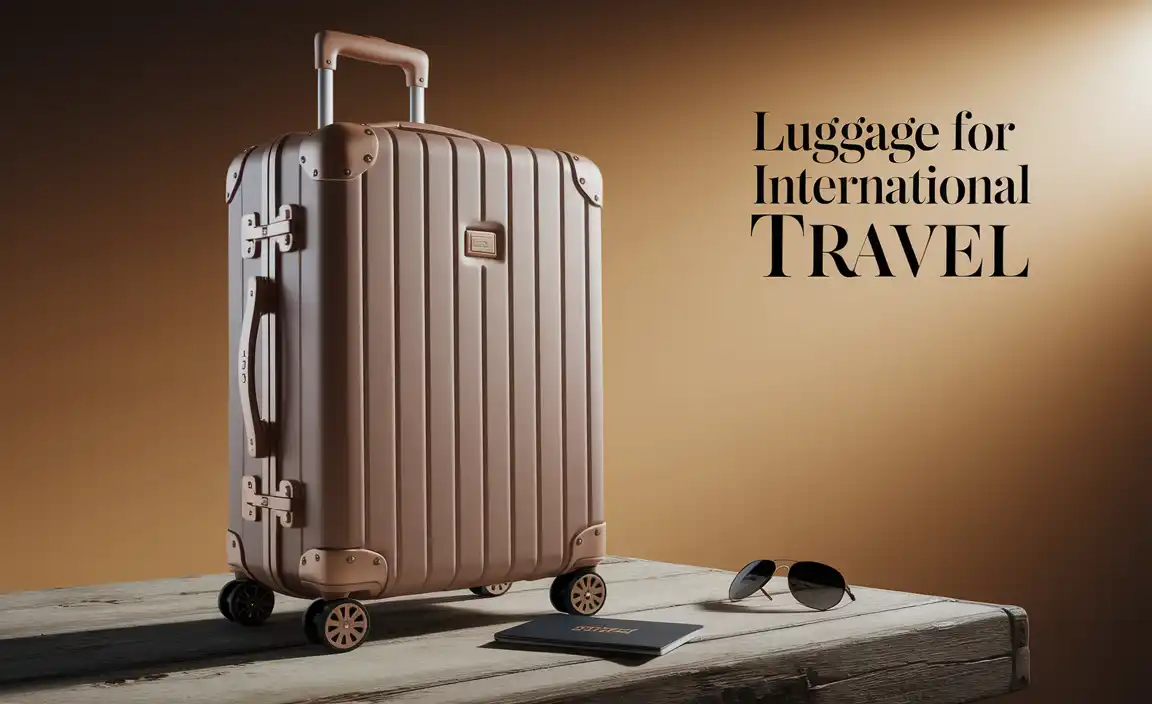Quick Summary:
Protect yourself in Bavaria by being aware of common tourist scams. Stay vigilant, trust your gut, and verify requests. This guide offers practical tips to help you enjoy a safe and scam-free trip in this beautiful region.
Exploring Bavaria is a dream for many, with its fairytale castles, stunning alpine scenery, and charming towns. But like any popular travel destination, it’s wise to be prepared for potential pitfalls. While Bavaria is generally very safe, a little awareness can go a long way in preventing common tourist scams and mistakes. This guide is designed to equip you with the knowledge needed to navigate your Bavarian adventure with confidence, ensuring your focus remains on the magic of the region, not on worrying about falling victim to a scam. We’ll cover everything from common tricks to simple yet effective ways to stay safe and secure.
Understanding Bavaria: A Safe Haven with a Few Caveats
Bavaria, a state known for its high quality of life, efficient system, and friendly locals, boasts one of Europe’s lowest crime rates. This means you can generally feel very secure while exploring its many attractions, from the bustling city of Munich to the tranquil Bavarian Alps. However, popularity attracts opportunists, and even in a safe environment, scams targeting tourists can occur. These are rarely violent and are often preying on unfamiliarity with local customs or a moment of distraction. The good news is that most scams are easily avoidable with a bit of common sense and preparation.
Our goal here at Journey Essentials is to make your travels as smooth and stress-free as possible. Whether you’re packing adult diapers for a long flight or ensuring your little ones have what they need for a comfortable day out, we believe preparedness is key. This extends to understanding the safety landscape of your destination. By learning about potential risks, you can mitigate them and truly immerse yourself in the wonderful experiences Bavaria has to offer.
Common Tourist Scams to Watch Out For in Bavaria
While Bavaria is incredibly safe, understanding potential tourist traps can help you avoid them. These scams are often low-level but can still be frustrating and costly. Knowing what to look for empowers you to stay one step ahead.
The “Found” Ring or Jewelry Scam
This is a classic scam seen worldwide, and Bavaria is not immune. Someone might “accidentally” drop a ring or other piece of jewelry near you, then pretend to have found it. They’ll approach you, claiming it must be yours or offering to share the find. The hope is that you’ll feel obligated to give them a reward or even buy the “valuable” item.
- How it works: A scammer strategically drops a ring or other item. They then approach the tourist, feigning surprise and offering the item.
- What to do: Simply decline any offer and continue walking. Do not engage with them or offer any money. If they insist, firmly state “Nein, danke” (No, thank you) and walk away.
- Why it’s a scam: The jewelry is usually costume jewelry, worthless. The scammer hopes to extort money from you for a fake reward.
The Overly Helpful Stranger
This scam often targets tourists by offering unsolicited help, especially around train stations, popular landmarks, or ticket counters. They might offer to help you with your luggage, buy train tickets, or guide you to a specific location. Their goal is often to distract you while an accomplice picks your pocket, or they may steer you towards overpriced services or rip-offs.
- How it works: A friendly stranger approaches, offering assistance you haven’t asked for. They might grab your luggage or lead you through a crowded area.
- What to do: Politely but firmly refuse all unsolicited help. If they offer to buy your ticket, say “Ich kann das selbst machen” (I can do this myself). Keep your belongings close and be wary of anyone trying to get too close or physically handle your items.
- Tip: Official tourist information centers and uniformed staff are your best resources for genuine help.
Fake Police or Officials
This is a more concerning scam, though still rare. Individuals posing as police officers might approach you, claiming you’ve committed a minor offense (like crossing the street illegally or not having your passport ready). They’ll ask for your wallet or passport to “inspect” it, often trying to take money or your credit cards.
- How it works: Someone in plain clothes or a poorly imitated uniform approaches, asserts authority, and demands to see your money or documents for a supposed fine or check.
- What to do: Real German police officers will usually be in uniform and will have identification. If approached by someone claiming to be an official and asking for money or your wallet on the spot, be highly suspicious. Ask to see their badge and ID. State that you will only go to the nearest official police station to settle any matter. You can find official police station addresses here. Never hand over your wallet or passport on the street to someone you suspect isn’t a genuine officer.
- Important: Official fines are typically paid later through official channels, not on the spot in cash to an unknown individual.
Watch and Jewelry Scams
Similar to the ring scam, this can involve someone approaching you to sell a “genuine” Swiss watch or gemstone at a “discounted” price. They might claim their car broke down and they desperately need cash, or that they have a special deal just for tourists.
- How it works: A seller offers high-value items (watches, jewelry) at incredibly low prices, claiming they’re authentic and you’re getting a once-in-a-lifetime deal.
- What to do: Be extremely skeptical of any unsolicited offers for luxury goods. If it seems too good to be true, it almost certainly is. These items are almost always fakes.
The “Broken” ATM Scam
While less common on newer ATMs, older machines might be fitted with skimmers. Sometimes, a passerby might approach you at an ATM offering help if the machine seems to malfunction. They could be trying to distract you or even install a device.
- How it works: A scammer might linger near ATMs, offering assistance or claiming the machine is broken. They might also install discreet card skimmers or pinhole cameras.
- What to do: Use ATMs located inside banks whenever possible. Be aware of your surroundings. If a machine looks tampered with or doesn’t feel right, don’t use it. Report any suspicious devices to the bank.
The Café and Restaurant Overcharge/Short-Change Scam
This is less about elaborate scams and more about common opportunistic dishonesty. Some establishments might try to overcharge tourists, add items you didn’t order to your bill, or give incorrect change.
- How it works: The bill might be inflated, items you didn’t consume might be listed, or you might receive less change than you are owed.
- What to do: Always check your bill carefully before paying. Count your change immediately after receiving it, especially if paying with cash. Familiarizing yourself with prices beforehand can help.
Essential Bavaria Safety Tips: Your Action Plan
Staying safe in Bavaria doesn’t require constant paranoia. It’s about adopting smart habits that protect you from common tourist traps. Here’s a practical, step-by-step approach.
1. Be Aware of Your Surroundings
This is the golden rule of travel safety, applicable anywhere. When exploring busy areas like train stations, tourist hotspots, and crowded markets, keep your wits about you. This means being mindful of who is around you and what they are doing. If something feels off, it probably is.
- In crowded places: Be extra vigilant. Pickpockets often use distractions.
- Walking: Pay attention to people approaching you or acting suspiciously.
- Public transport: Keep valuables secure and out of sight.
2. Keep Valuables Secure and Out of Sight
The less visible your valuables are, the less appealing you are as a target. Think about how you carry your money, phone, and passport.
Here’s a simple strategy:
- Front Pockets: Keep your wallet and phone in your front pockets rather than back pockets.
- Money Belts/Pouches: Consider using a discreet money belt or neck wallet for your passport, extra cash, and credit cards, especially when on the move or in very crowded areas.
- Day Bag Security: If you use a backpack or shoulder bag, wear it in front of you in crowded situations. Ensure zippers are closed and consider using a bag with anti-theft features.
- Limit Cash: Only carry the cash you expect to need for the day. Leave the rest secured in your hotel safe.
3. Trust Your Instincts
Your intuition is a powerful tool. If someone makes you feel uncomfortable, or a situation seems too good to be true, it likely is. Don’t feel pressured to be polite if it means putting yourself at risk.
- Feeling uneasy: If a person or situation triggers a “red flag,” disengage.
- Unsolicited offers: Be wary of anyone offering you something or wanting to “help” without being asked.
- Pressure tactics: If someone is pressuring you to make a decision quickly, it’s a sign to be cautious.
4. Verify Official Requests
Scammers often impersonate authority figures. Always verify if someone claiming to be an official is legitimate.
- Ask for ID: Legitimate officials should have official identification.
- Official Procedures: If asked for money or documents on the spot, express that you would prefer to handle it at the nearest official station.
- Know Local Numbers: Save the emergency number (112 in Europe) and the numbers for local police stations in your phone.
5. Be Smart with Money and Transactions
From ATMs to restaurants, be smart about your financial dealings.
Practical steps:
- ATMs: Use ATMs inside banks or well-lit, busy areas. Check for any suspicious devices on the card slot or keypad before inserting your card.
- Credit Cards: Inform your bank about your travel dates to avoid fraud alerts. Keep your card in sight when paying in restaurants or shops.
- Change: Always count your change carefully and immediately.
- Exchange Rates: Be aware of current exchange rates to avoid being short-changed or falling for bad deals.
6. Research Your Accommodation and Transportation
Book accommodations and transport through reputable sites and providers. Be wary of deals that seem too cheap, especially for last-minute bookings.
- Accommodation: Look for reviews and ratings on trusted booking platforms.
- Taxis: Use official taxi stands or reputable ride-sharing apps. Avoid unmarked cars offering rides.
- Train Tickets: Purchase tickets directly from official Deutsche Bahn (DB) ticket machines or counters.
7. Stay Informed About Local Laws and Customs
While not a direct scam, ignorance of local rules can lead to misunderstandings or fines that might feel like a scam. For instance, validating your public transport ticket before boarding is crucial in many German cities.
- Ticket Validation: In many public transport systems, you must validate your ticket (punch it or stamp it) before or at the start of your journey. Failure to do so can result in a fine.
- Public Behavior: General awareness of acceptable public conduct will help you blend in and avoid unwanted attention.
Resources for Staying Safe in Bavaria
Being prepared is always best, and having reliable information at your fingertips can greatly enhance your safety. Here are some resources:
- German Tourist Information: Your local tourist information center is a great place to get reliable advice and information specific to the area you are visiting.
- Police Advice: The Bavarian State Police provide valuable safety information. While much of it may be in German, official websites often have an English version or useful contact details. Their preparedness for tourists is generally high. Bavarian Police Official Website.
- Travel Advisories: For broader safety information regarding Germany, consult your home country’s official travel advice. For example, the U.S. Department of State shares country-specific information for U.S. citizens: U.S. Department of State – Germany.
Table: Common Scam vs. Real Situation
It can be helpful to differentiate between a scam and a genuine situation. This table outlines some common scenarios.
| Scenario | Scam Indicator | Genuine Situation Indicator |
|---|---|---|
| Someone approaches offering help to buy a ticket. | They pressure you, try to take your cash directly, steer you to a specific booth, or the price seems off. | Clearly identified official ticket seller, standard pricing, no pressure, accepts cards or standard cash denominations. |
| Someone “finds” jewelry and offers it to you. | They insist you take it or buy it, seem overly eager for money, and the item appears fake. | A genuine lost and found scenario would involve directing you to lost property or police, not a direct sale. |
| An individual in plain clothes asks for your passport/wallet. | They are aggressive, demand immediate cash payment for a supposed fine, and don’t have clear credentials. | Uniformed officer with visible ID, official police station they direct you to, standard procedure for fines, never on-the-spot cash demand. |
| A stranger offers a “great deal” on a watch/item. | The deal is incredibly low for a luxury item, they are reluctant to meet in public official places, and push for a quick sale. | High-value items are purchased from authorized dealers with receipts and warranty, not from street vendors. |
Traveling with Confidence: Practical Preparations
As someone who believes in making travel as comfortable and stress-free as possible, whether it’s packing the right travel accessories or ensuring you have essential personal care items, preparation is key. This applies to safety too. Knowing what to do, and what to avoid, builds confidence.
For those who rely on adult diapers or child diapers for comfort and security during travel, the peace of mind that comes from being prepared is invaluable. Brands like [Example Brand Name 1] or [Example Brand Name 2] offer discreet, absorbent, and comfortable options suitable for long journeys, ensuring your focus is on enjoying Bavaria, not on potential discomfort or worry. Planning for these needs alongside safety preparations makes for a truly enjoyable experience.
Frequently Asked Questions About Bavaria Safety
Here are some common questions beginner travelers have about staying safe in Bavaria.
Q1: Is Bavaria a safe destination for solo female travelers?
A: Bavaria is considered very safe for solo female travelers. Violent crime is extremely low. As with any destination, it’s wise to be aware of your surroundings, especially at night or in less populated areas, and to avoid displaying excessive wealth.
Q2: What is the emergency number to call in Bavaria?
A: The universal European emergency number is 112. This number connects you to police, ambulance, and fire services anywhere in the European Union, including Bavaria.
Q3: Should I carry my passport with me at all times in Bavaria?
A: While not strictly mandatory for EU citizens, as a tourist, it is advisable to carry a form of identification, and your passport is the most universally accepted. However, for everyday outings, keeping your passport securely in your hotel safe and carrying a photocopy or a digital copy on your phone can be a good compromise to reduce the risk of loss or theft.
Q4: Are there pickpocketing risks in Bavaria?
A: Yes, like most popular tourist destinations, there can be pickpocketing risks, particularly in crowded areas like train stations (e.g., Munich Hauptbahnhof), popular tourist attractions, and on public transport during peak hours. Being aware of your belongings and using secure bags is essential.
Q5: How can I avoid being overcharged at restaurants or cafes?
A: Always check the menu prices before ordering. When the bill arrives, review it carefully to ensure you haven’t been charged for items you didn’t receive. Count your change immediately if paying with cash. If you have any doubts, politely ask for clarification.
Q6: Is it safe to use ATMs on the street in Bavaria?
A: It is generally safe, but it’s best to use ATMs located inside banks or in well-lit, busy areas





